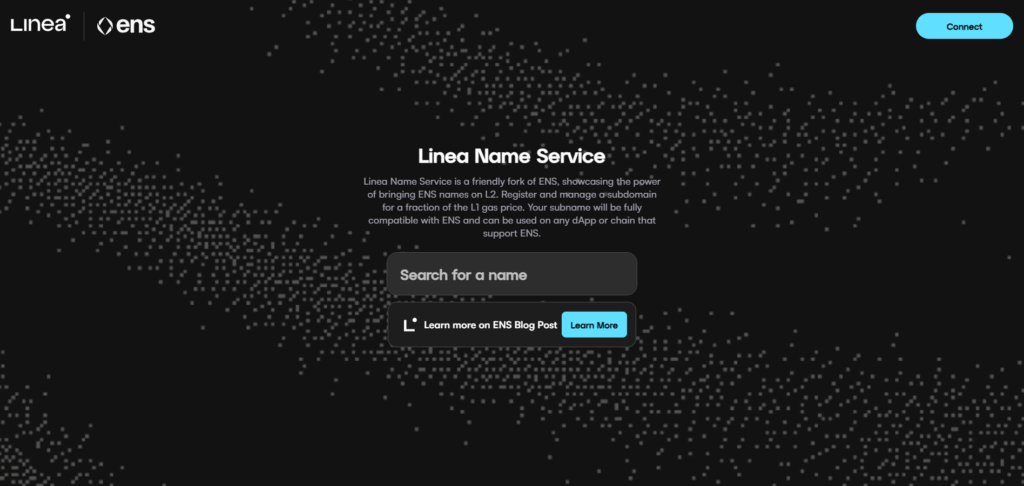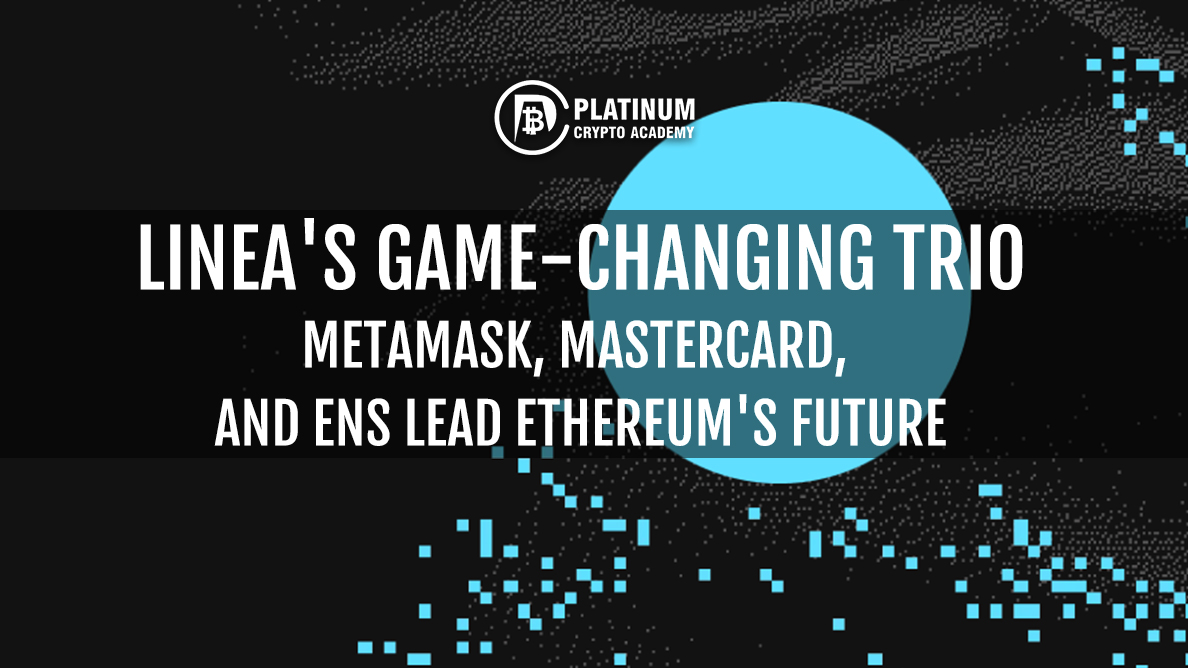As someone been working in Crypto space since late 2016, I’ve witnessed the ebbs and flows of the market over the years. The rise and fall of various altcoins, and the ongoing evolution of I’ve seen my fair share of projects promising to revolutionize the industry, improving gas fees and so the usual claims. But every now and then, something comes along that truly captures my attention. Enter Linea—a player in the Ethereum Layer 2 landscape that’s not just addressing scalability issues but also doing so in a way that genuinely enhances the user experience. With strategic integrations like MetaMask and the introduction of ENS domains, along with a clear focus on building for a decentralized future, Linea is shaping up to be a key player worth keeping an eye on.
MetaMask and Linea: A Perfect Match for Layer 2 Adoption
If you’ve been around the crypto block, you know MetaMask. It’s the go-to wallet and dApp browser for millions of Ethereum users. So, when I heard that MetaMask was integrating with Linea, I knew this was a big deal. This isn’t just a simple partnership—it’s a power move that brings the benefits of Ethereum Layer 2 to the masses.
One of the coolest things about this integration is MetaMask’s new Mastercard, which is exclusively available on Linea. Imagine this: you can now seamlessly convert your crypto into fiat for everyday purchases. It’s like bringing your digital assets into the real world, and it’s all happening on Linea. This kind of integration is exactly what we need to bridge the gap between decentralized finance and traditional banking, and it’s a huge win for anyone using MetaMask.

But it’s not just about making transactions easier. This collaboration with MetaMask is also about setting new standards for user experience in decentralized finance. By simplifying the way users interact with Ethereum and making these interactions more intuitive, Linea is helping to push the entire industry forward. This partnership is a clear step toward making blockchain technology more practical and accessible for everyday users.
ENS Domains: Making Blockchain a Little More Human
Let’s be honest—Ethereum addresses are a pain to deal with. Those long, alphanumeric strings are just asking for a mistake. That’s where ENS (Ethereum Name Service) domains come in, and Linea has smartly integrated them into their platform. With ENS, you can replace those confusing addresses with something as simple as “yourname.eth.” It’s a small change that makes a big difference, especially for those of us who want a smoother, less stressful experience when dealing with crypto.
The integration of ENS with Linea is a no-brainer. It simplifies everything, making blockchain interactions more intuitive and less error prone. But beyond just convenience, this move reflects Linea’s broader commitment to decentralization and user empowerment. The goal isn’t just to make things easier; it’s to create a decentralized ecosystem where users have more control and autonomy over their interactions. By making blockchain technology more accessible and user-friendly, Linea is helping to democratize access to decentralized finance, one ENS domain at a time.

Linea’s Gas API: Taking the Guesswork Out of Gas Fees
If you’ve ever been frustrated by Ethereum’s gas fees, you’re not alone. It’s one of the biggest pain points in the ecosystem, especially during peak times when fees can skyrocket. Linea’s solution? A dedicated Gas API that makes estimating fees easier and more accurate.
What’s great about this API is how it streamlines the process. Instead of juggling multiple endpoints to figure out gas fees, Linea’s API does it all in one go. It gives you a clear breakdown of what you’re going to pay, which is crucial for both developers and users who want a smooth, cost-effective experience. And let’s face it, anything that saves us time and money in the crypto space is a welcome improvement.
The accuracy of this Gas API is particularly impressive. It ensures that transactions are processed efficiently, reducing the chances of overpaying or getting stuck in a backlog. This ties into Linea’s larger vision, which emphasizes the importance of creating scalable, decentralized solutions that enhance user experience while maintaining the core values of blockchain technology. The Gas API is a perfect example of how Linea is making blockchain more accessible without compromising on the principles of decentralization.
Decentralized Identity and Linea’s Vision for the Future
Another exciting dimension to Linea’s platform is its focus on decentralized identity solutions. As we move towards a more interconnected and digital world, the need for secure, decentralized ways to verify identity becomes increasingly important. Linea is actively exploring this space, recognizing that decentralized identity is not just a trend but a critical component of the Web3 future.
Linea’s approach to decentralized identity is all about giving users control over their personal data. In a world where data breaches and privacy concerns are all too common, Linea’s commitment to decentralized identity provides a much-needed alternative to traditional, centralized identity systems. By leveraging blockchain technology, Linea is working to ensure that users can verify their identity securely and privately, without relying on third parties that might not have their best interests at heart.
This focus on decentralized identity also ties into the broader vision of creating a truly decentralized ecosystem. As Linea continues to develop, it’s clear that they’re not just thinking about today’s challenges but are also preparing for the future of digital identity and data sovereignty. This forward-thinking approach is what sets Linea apart as a leader in the Ethereum Layer 2 space.
Decentralization and the Future of Layer 2 Networks
One of the most compelling discussions around Linea, and Layer 2 solutions in general, centres on decentralization. There’s been a lot of talk about the trade-offs between centralization and decentralization, especially when it comes to Layer 2 technologies. While some teams opt for centralization to streamline operations, Linea has taken a firm stance on the importance of decentralization as a core component of security and resilience.
Decentralization isn’t just a buzzword; it’s a necessity for building a secure and sustainable blockchain ecosystem. By decentralizing key components like the sequencer and leveraging technologies like ZK (Zero-Knowledge) rollups, Linea is pushing the envelope in ensuring that their platform remains both robust and scalable without sacrificing the principles of decentralization. This approach not only mitigates risks, such as single points of failure but also aligns with the broader ethos of the blockchain community—a commitment to building open, transparent, and secure networks.
Linea’s efforts to decentralize are particularly evident in their commitment to creating a multi-prover environment, where multiple independent provers can validate transactions. This not only enhances security but also fosters competition and innovation, ensuring that no single entity has undue control over the network. As Layer 2 technologies continue to evolve, Linea’s approach to decentralization will likely set a standard for others to follow.
Expanding the Linea Ecosystem: Where Innovation Meets Collaboration
What really excites me about Linea is the community they’re building. The recent Linea Community Call highlighted some incredible developments, from ongoing support for hackathons to new tools for developers. These aren’t just one-off events; they’re part of a broader strategy to foster innovation and collaboration within the Linea ecosystem.
Hackathons, for example, are more than just competitions—they’re breeding grounds for the next big thing in blockchain. The projects that come out of these events are pushing the boundaries of what’s possible with Linea, and it’s inspiring to see so much creativity and talent being channelled into this platform. It’s clear that Linea is not just focused on solving technical challenges but also on nurturing a vibrant, active community that’s ready to take on the future of decentralized applications.
The Bigger Picture: Linea’s Role in the Future of Ethereum
Looking at everything Linea is doing—from integrating MetaMask and ENS to developing tools like the Gas API and exploring decentralized identity—it’s clear that they’re not just another Layer 2 solution. They’re positioning themselves as a key player in Ethereum’s future. As the network continues to grow, the demand for scalable, user-friendly solutions will only increase, and Linea is perfectly poised to meet that demand.
The vision for Linea is clear: to create a more accessible, decentralized ecosystem that empowers users and developers alike. Whether you’re a developer looking to build the next big dApp or a user who wants a seamless blockchain experience, Linea has something to offer. They’re solving real problems with innovative solutions, and they’re doing it in a way that makes blockchain technology more accessible and practical for everyone.
Wrapping It Up
So, that’s why I’m excited about Linea. They’re taking on some of the biggest challenges in the Ethereum ecosystem and making real progress. With the kind of partnerships, tools, and community they’re building, I’m confident that Linea will play a crucial role in the future of Ethereum. It’s an exciting time to be involved in the blockchain space, and I, for one, can’t wait to see where Linea goes from here.
Hopefully, you have enjoyed today’s article. Thanks for reading! Have a fantastic day! Live from the Platinum Crypto Trading Floor.
Earnings Disclaimer: The information you’ll find in this article is for educational purpose only. We make no promise or guarantee of income or earnings. You have to do some work, use your best judgement and perform due diligence before using the information in this article. Your success is still up to you. Nothing in this article is intended to be professional, legal, financial and/or accounting advice. Always seek competent advice from professionals in these matters. If you break the city or other local laws, we will not be held liable for any damages you incur.


